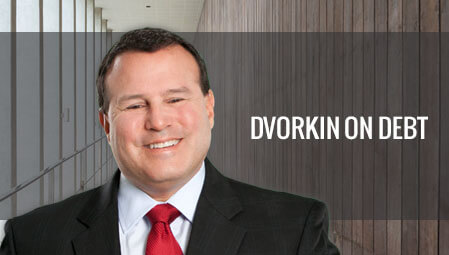There's one cutting-edge, high-tech tool you're probably not using the right way.
As a CPA and financial counselor, I have a love-hate relationship with technology.
I love it because there are now a slew of cutting-edge tools that make it easy to keep a budget and ensure you’ll never miss a bill again. One of my favorites of the moment is called Tiller, which Debt.com has endorsed.
Then again, I hate technology because I’ve seen too many indebted Americans attempt to automate their financial lives without actually thinking about it. Even worse, I’ve seen Americans cavalierly part with their personal data.
Recently, a global survey by a cloud company called Datastax revealed, “53 percent of adults in the United States are more willing to share their personal data with a company that personalizes its services/products based on that data.” That’s higher than any other country. (The UK was second at 43 percent.)
As a CPA and financial counselor for more than two decades, I’ve seen technology improve our financial decisions. Heck, Debt.com is a product of that technology. I couldn’t build a one-stop-shop for solving all debt problems in 1990 or even 2000. It took until just a few years ago to make it easy to compare your debt-solution options.
Alas, instead of using technology to learn about and monitor their finances, Americans seek to automate their finances.
When Charles Schwab polled 1,000 Americans this fall, the investment firm found a quarter of them “would sooner automate their day-to-day finances than rely on technology to get food delivered (22 percent) or find a date (18 percent).”
The big problem with automation is that, well, it’s automatic. You don’t need to give it a first thought, much less a second. That’s wonderful in some areas. For instance, I remember growing up with cars that had air-conditioning buttons marked LOW, MEDIUM, and HIGH. Now my car has a thermostat. I can set a temperature and not fiddle with the buttons.
Finances, however, are as important as children. You don’t automate parenting. Sure, it’s nice to take a break by giving your child an iPad to keep him quiet in a restaurant. But you’re still monitoring the content on that iPad, and you’re still paying attention to your child’s education and moods.
Yet I’m knowing more and more people who automate their income and outflow to such a degree, they can’t answer basic questions I ask them: How much do you have left over at the end of the month? How much do you spend on non-essential purchases?
Instead of using, say, Tiller, to really drill down on their budget, they use automation tools to ignore their money. In essence, they’re ignoring the greatest technical invention in the history of the planet: the human brain.
Once again, millennials may be leading the way. I’ve written often over the years about millennials getting a bad rap for all things money. Instead, I’ve wondered if they’ll end up being the greatest financial generation. Earlier this year, Debt.com reported this headline: Millennials Really Do Save Better Than Older Generations.
So it’s no wonder that a research firm called Logica polled millennials this fall and found…
- “61 percent are likely to use push notifications to guide daily spending decisions.”
- “59 percent are likely to use computer-generated advice to guide spending, saving, and investment decisions.”
- “47 percent are likely to use a tool showing what their peers are saving/investing.”
That’s how you use technology to be smart about your money, instead of using technology to ignore your money. Other generations may want to learn from this much-maligned generation.








